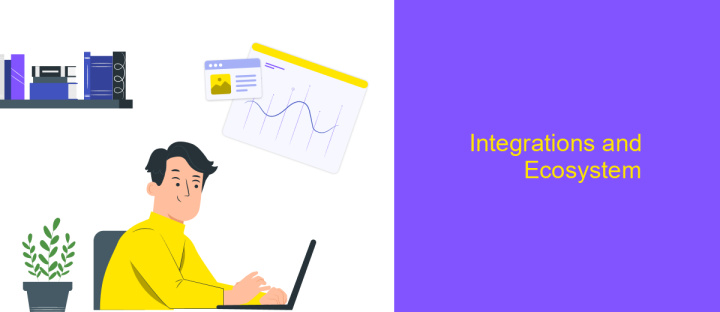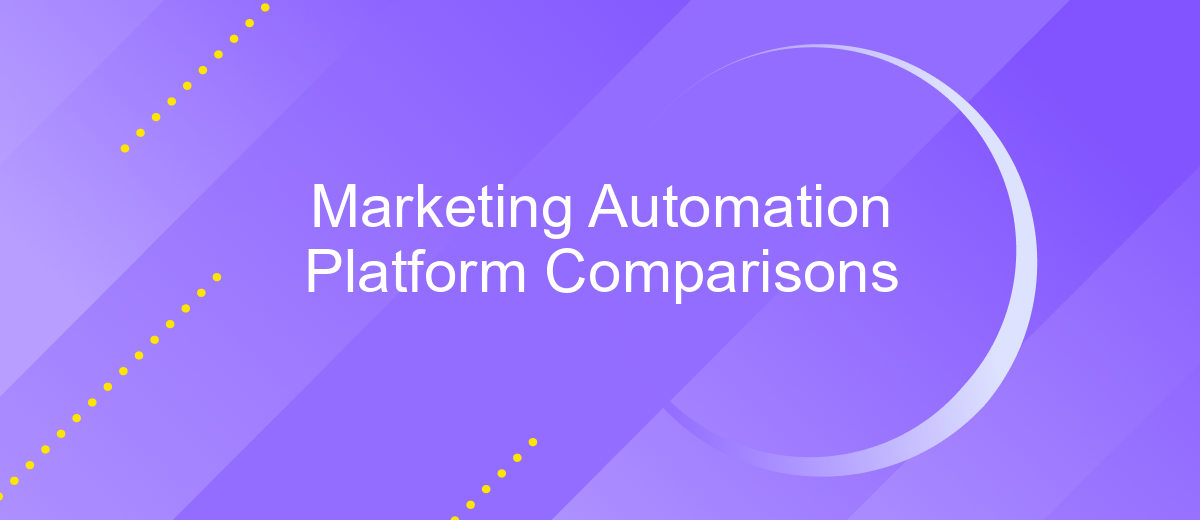Marketing Automation Platform Comparisons
In today's fast-paced digital landscape, marketing automation platforms have become essential tools for businesses aiming to streamline their marketing efforts and enhance customer engagement. This article provides a comprehensive comparison of leading marketing automation platforms, examining their features, pricing, and ease of use to help you make an informed decision that aligns with your business goals and budget.
Platform Overview
Marketing automation platforms are essential tools for modern businesses, enabling them to streamline and optimize their marketing efforts. These platforms provide a range of functionalities designed to automate repetitive tasks, manage customer data, and execute targeted campaigns. By leveraging these tools, companies can improve efficiency, enhance customer engagement, and drive higher conversion rates.
- HubSpot: Known for its user-friendly interface and comprehensive features, HubSpot offers tools for email marketing, social media management, and lead nurturing.
- Marketo: A robust platform suitable for large enterprises, Marketo excels in lead management, account-based marketing, and analytics.
- Pardot: Ideal for B2B companies, Pardot integrates seamlessly with Salesforce and offers advanced lead scoring and ROI reporting.
- ActiveCampaign: This platform combines email marketing, automation, and CRM capabilities, making it a versatile choice for small to medium-sized businesses.
- Mailchimp: Popular among startups and small businesses, Mailchimp provides easy-to-use tools for email campaigns, landing pages, and audience segmentation.
Choosing the right marketing automation platform depends on your business needs, budget, and technical expertise. Each platform has its strengths and weaknesses, so it's important to evaluate them based on your specific requirements. By selecting the right tool, you can significantly enhance your marketing strategy and achieve better results.
Key Features and Functionality

Marketing automation platforms offer a range of key features designed to streamline and enhance marketing efforts. These platforms typically include tools for email marketing, customer segmentation, and lead scoring. Advanced analytics and reporting capabilities allow marketers to track campaign performance and make data-driven decisions. Additionally, many platforms offer A/B testing to optimize content and improve conversion rates. The ability to create personalized customer journeys through automated workflows is another standout feature, ensuring that each customer receives tailored communications based on their behavior and preferences.
Integration capabilities are crucial for a marketing automation platform to function seamlessly with other tools and services. Platforms like ApiX-Drive facilitate these integrations by connecting various applications, enabling data to flow smoothly between systems. This ensures that marketing teams can leverage existing CRM, social media, and e-commerce tools without manual data transfers. Moreover, ApiX-Drive's user-friendly interface allows for easy setup and management of integrations, saving time and reducing the risk of errors. Overall, these features and functionalities enable businesses to execute more efficient and effective marketing strategies.
Pricing and Licensing

When evaluating marketing automation platforms, understanding pricing and licensing is crucial for making an informed decision. Each platform offers a variety of pricing models and licensing agreements to cater to different business needs and budgets. Here, we break down the common structures you might encounter.
- Subscription-Based Pricing: Many platforms operate on a subscription model, charging a monthly or annual fee based on the number of users or features.
- Tiered Pricing: This model offers different packages (e.g., Basic, Pro, Enterprise) with varying features and support levels, allowing businesses to choose according to their requirements.
- Pay-As-You-Go: Some platforms offer a flexible pay-as-you-go model, charging based on usage metrics such as the number of emails sent or contacts managed.
- Custom Pricing: For large enterprises with specific needs, custom pricing plans can be negotiated directly with the vendor, often including additional support and tailored features.
Understanding these pricing models and licensing options can help you select a marketing automation platform that aligns with your business goals and financial constraints. Always review the terms and conditions thoroughly to avoid hidden costs and ensure the platform meets your long-term needs.
Integrations and Ecosystem

When evaluating marketing automation platforms, it's crucial to consider their integrations and ecosystem. Seamless integration with existing tools and systems can significantly enhance the efficiency and effectiveness of your marketing efforts.
A robust ecosystem allows for easy connection with CRM systems, social media platforms, email marketing tools, and analytics software. This interconnectedness ensures that data flows smoothly between different applications, providing a comprehensive view of your marketing activities.
- CRM Integration: Sync customer data and interactions for personalized marketing.
- Social Media Integration: Automate posts and track engagement across platforms.
- Email Marketing Integration: Streamline email campaigns and track performance.
- Analytics Integration: Gain insights from integrated data to refine strategies.
Choosing a marketing automation platform with a diverse and robust ecosystem can save time and resources, enabling your team to focus on strategy and creativity. Ensure the platform supports the tools you already use and can scale with your business needs.


Customer Support and Resources
When evaluating marketing automation platforms, customer support and resources play a crucial role in ensuring seamless integration and optimal use of the software. Top-tier platforms offer a range of support options, including 24/7 live chat, email support, and comprehensive knowledge bases. These resources are designed to assist users with troubleshooting, onboarding, and maximizing the platform's features. Additionally, many platforms provide dedicated account managers and personalized training sessions to help businesses tailor the software to their specific needs.
Another critical aspect is the availability of integration services that simplify connecting various marketing tools. ApiX-Drive, for example, offers an intuitive interface for setting up integrations without extensive technical knowledge. This service streamlines the process, allowing users to connect their marketing automation platform with other essential tools like CRM systems, email marketing services, and social media platforms effortlessly. By leveraging such integration services, businesses can enhance their marketing strategies and ensure that all their tools work harmoniously together.
FAQ
What is a Marketing Automation Platform?
How do I choose the right Marketing Automation Platform for my business?
Can Marketing Automation Platforms integrate with other software?
What are the benefits of using a Marketing Automation Platform?
Is it difficult to set up a Marketing Automation Platform?
Strive to take your business to the next level, achieve your goals faster and more efficiently? Apix-Drive is your reliable assistant for these tasks. An online service and application connector will help you automate key business processes and get rid of the routine. You and your employees will free up time for important core tasks. Try Apix-Drive features for free to see the effectiveness of the online connector for yourself.

